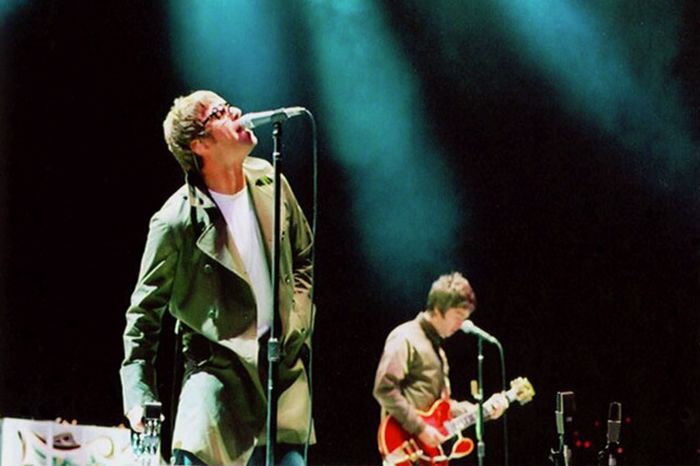Dance, No One’s Watching is Ezra Collective’s love letter to joyful freedom
The new album from one of the UK’s most important Jazz acts reveals the liberating power of dance

Just last year, the trailblazing UK Jazz band Ezra Collective became the first of their genre to win the esteemed Mercury Prize for their album Where I’m Meant to Be. This was followed by sold-out UK and US tours, a MOBO Award, and a show-stopping performance at Glastonbury. Since 2012, Femi and TJ Koleoso, Ife Ogunjobi, James Mollison, and Joe Armon-Jones have interwoven eclectic sonic threads to craft music that encapsulates the beauty of jazz through and through while being unapologetically London.
“As a West African Londoner, I’ve found a musical home in the familiar yet completely new sounds woven into the polyrhythms of these tracks”
From start to finish, Ezra Collective’s new album Dance, No One’s Watching is warm and welcoming. The first track ‘Intro’ begins with a soundscape of quiet chatter that melts into the background as the percussion and bassline crescendo into a dub-inspired jam. The next track ‘The Herald’ feels triumphant; it is an invitation to step into somatic euphoria, dancing into the sunrise. ‘Palm Wine’ feels like dancing into the sunset, with its glimmering chimes and buttery guitar melodies melting into each other like sweet palm wine, an important drink in many West African cultures. The album remains faithful to a patchwork of African sounds, with multiple tracks inspired by Nigerian and Ghanaian highlife, and the track ‘Streets Is Calling’ features South African singer Moonchild Sanelly and Ghanaian rapper M.anifest. As a West African Londoner, I’ve found a musical home in the familiar yet completely new sounds woven into the polyrhythms of these tracks.

An ode to the dancefloors they encountered during their world tour, the album was written and recorded on tour buses, planes, and stages, between gigs. This organic, pieced-together artistic process enabled the album to carry a resonating, soulful joy that can be hard to find in contemporary music. Ezra Collective has soul without even trying; it’s simply who they are. One of the most soulful tracks features vocalist Yazmin Lacey on ‘God Gave Me Feet for Dancing,’ where the singer remains in constant conversation with the instruments. Their interactions take shape as countermelodies, call and response, and accompanying harmonies, entwining like partners in a dance. The sheer talent of the musicians on this record continues to shine through from the second you hit play.
“Ezra Collective continues to build a legacy that feels timeless, heartfelt, and meaningful”
As always, Ezra Collective shows us that genres are a spectrum, not fixed or static categories. The album sways from side to side along a spectrum of sounds and energies, dancing across genre boundaries and defying rigid conformity. The integration of the crowd into the album’s sound design makes it feel as though, as a listener, you are part of something blissful and communal, enveloped in a coming together in celebration of life. According to Femi, the ‘collective’ element of their artistry holds great significance, and family and inclusivity define this record, with the entire collective, not just the band, present during the recording process. The track ‘Ajala’, for example, begins with a call for the audience to clap along to the beat, and once again, we are drawn away from the individualised process of listening to music in the streaming era into an energetic, spiritual exchange with others. This album has been a genuinely unique listening experience for me, and I would love to see more artists record this way, effectively breaking the musical ‘fourth wall’ in a non-hierarchical manner. Concert recordings often tend to create a power dynamic between the crowd and the artist, but that doesn’t feel present here.
This album has been on repeat for me since its release, becoming an important part of my daily routine. It offers ethereal and peaceful sounds to wake up to in the morning, with just the right amount of energy and groove to get me moving. Femi described the album as a “statement of freedom,” encouraging listeners to shake off the gaze of potential onlookers and “be who you want to be” because, in reality, “nobody’s watching.” The track introducing Act 3, ‘our element.’ ends with the line: “You can’t be angry when you’re dancing — so keep dancing.” This album is a proud call for embodied connection to music in community, moving towards spiritual freedom. Importantly, this album stores everyday memories of people experiencing musical elation. Ezra Collective continues to build a legacy that feels timeless, heartfelt, and meaningful.
 News / Eight Cambridge researchers awarded €17m in ERC research grants27 December 2025
News / Eight Cambridge researchers awarded €17m in ERC research grants27 December 2025 News / Clare Hall spent over £500k opposing busway 24 December 2025
News / Clare Hall spent over £500k opposing busway 24 December 2025 Comment / League tables do more harm than good26 December 2025
Comment / League tables do more harm than good26 December 2025 Comment / The ‘class’ of Cambridge24 December 2025
Comment / The ‘class’ of Cambridge24 December 2025 News / Caius mourns its tree-mendous loss23 December 2025
News / Caius mourns its tree-mendous loss23 December 2025









